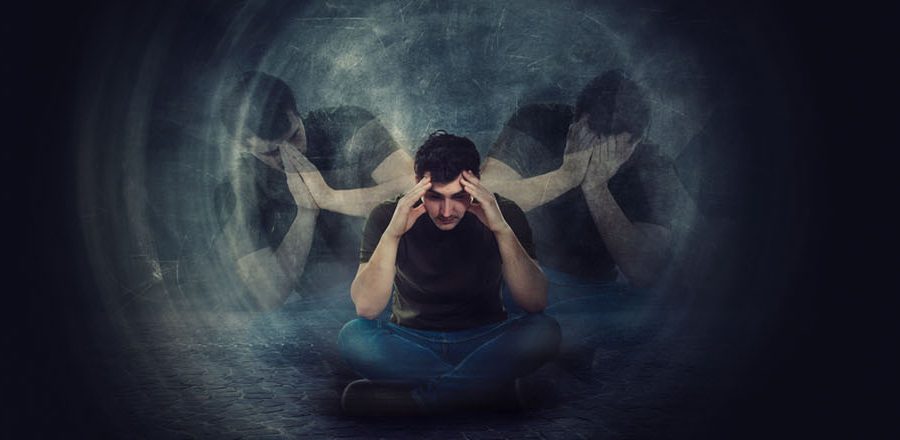Schizophrenia is a chronic mental disorder that usually starts between the ages of 16 and 40 (early adulthood or late adolescence) and may result in combination of hallucinations, delusions, and other cognitive difficulties. It may extremely affects the way a person thinks, behaves, acts, express and interpret reality and can impact day to day functioning as well. Though it isn’t as common as other mental illnesses, it can be the most chronic and sometimes a very severe disorder.
In Schizophrenia person cant differentiate between reality and imagination. At time, people lose touch with reality. For them world seems like a heap of perplexing thoughts, images, and sounds. However it varies from person to person. People can also experience more than one episodes of Schizophrenia during a life. Early treatment may help in improving the long-term outlook.
Types of Schizophrenia
Based on the types of symptoms the person exhibits, Schizophrenia is categorized into five types:
- Paranoid schizophrenia- is characterized by paranoid behaviour. People with this type may exhibit anxiety, anger and aggression. Symptoms include combination of hallucinations and delusions.
- Catatonic schizophrenia– This is diagnosed rarely. They are characterized by limited or sudden movements. They may not say anything for hours or can mimic other’s speech or act done by others.
- Undifferentiated schizophrenia– This is the most common form of Schizophrenia. In this type of schizophrenia, a person behaviours shows some signs of paranoid, hebephrenic or catatonic schizophrenia, means fit into two or more types. Symptoms may include such as delusions, hallucinations, and disorganized behavior.
- Residual schizophrenia- When a person currently has no symptoms or negative symptoms such as poor memory or concentration, slow movement, but is having past history of at least one episode of schizophrenia then it is considered to have residual schizophrenia.
- Unspecified schizophrenia- This type don’t fit in any of the above categories but symptoms meet the condition for a diagnosis.
Causes of Schizophrenia
The cause of schizophrenia is unknown, which may differ from person to person, including:
- Genetics– tends to run in families
- Environment- exposure to toxins, viral infections, relationship problems, divorce, unemployment etc.
- Life events such as money problems, grief, or abuse
- Drugs –cannabis or other recreational drugs
- Brain chemistry
- Brain development – injury, birth complications or difference of the brain may lead to schizophrenia.
Symptoms of Schizophrenia
In schizophrenia people might notice subtle behavioral changes, problems with thinking and difficulty in expressing emotions but symptoms may vary from person to person. Symptoms include:
- Delusions (false belief that are not true in reality)
- Hallucinations (seeing or hearing things that are not in existance)
- Disorganized speech or thinking (impaired communication and answers are completely unrelated)
- Abnormal movements, inappropriate posture, complete lack of response
- Poor hygiene
- Negative Symptoms– Social withdrawal, difficulty in expressing emotions, not able to change facial expressions, monotonous speech, loss interest in day to day activity etc.
- Cognitive symptoms– Inability to make decisions, poor memory, problems with learning new things, lack of focus etc.
- Mood symptoms– Anxiety, Depression, Suicidal thoughts etc.
Treatments for schizophrenia
There is no permanent treatment for schizophrenia, however, the goal is reduce the chances of a relapse and to limit the returns of symptoms. The most common treatment for schizophrenia may include:
Medications: Your doctor may recommend antipsychotic as primary medications to treat schizophrenia. These help to reduce most troubling symptoms of schizophrenia including delusions, hallucinations, but will not cure it.
Your doctor may ask you to keep close eye on the side effects of the medication and if you find them too difficult to cope, he may change the medication. It is also important not to stop medication suddenly because it can cause severe symptoms.
Psychosocial therapies: Through various psychosocial treatments patients may learn to manage their symptoms and come up with a relapse prevention plan. Therapies may include talking therapy, family intervention, individual therapy, Art therapy, CBT, CRT, rehabilitation and group therapy.
Self-care- It focuses on ways through which you can manage your symptoms yourself. Some of the ways are exercise, proper diet, and change in daily routine, taking medication on time, recognising triggers of symptoms etc.


